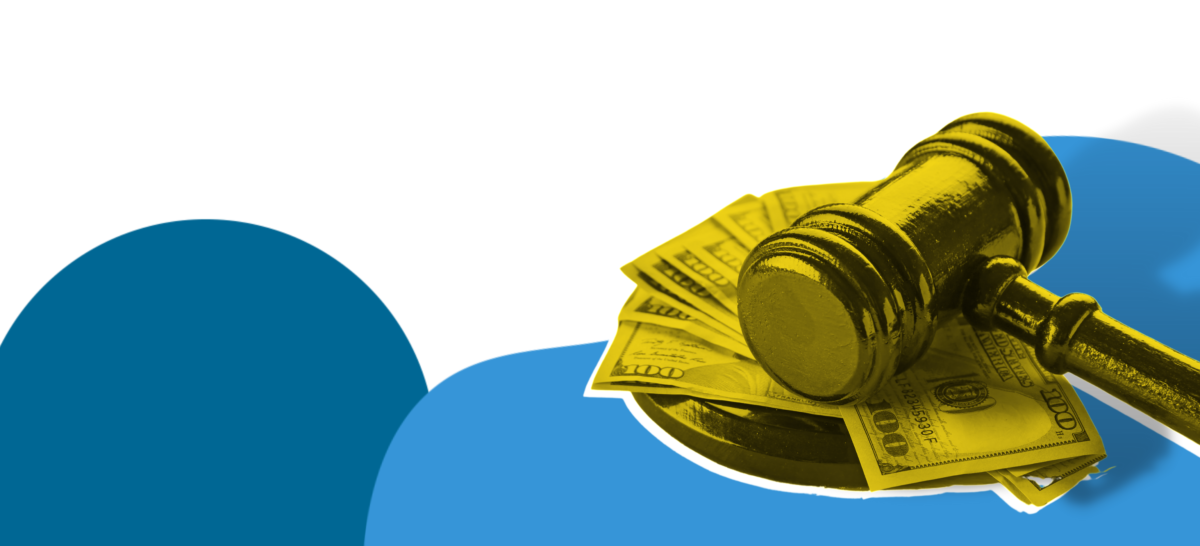

“Corruption has flourished and continues to flourish.” This is how Putin assessed our history of corruption in his speech, and our history in general… We don’t even want to evaluate most of his points. However, I can’t help but compare anti-corruption cases in Ukraine and those in Russia. What does the Corruption Perceptions Index (CPI) and other studies tell us?
Anti-corruption reform in Ukraine started in 2014 and continues until now. In more than 8 years, we have managed to create an ecosystem of anti-corruption bodies, overcome the crisis of constitutional justice, and even update the legislative framework for the Asset Recovery and Management Agency and the National Anti-Corruption Bureau. In 2.5 years, the High Anti-Corruption Court passed 67 sentences in cases of high-level corruption and much more.
We launched a number of e-services, made the procurement and property management process truly public, won global awards for e-tools in open governance, and were even mentioned in the US Strategy on Countering Corruption.
In the recent Corruption Perceptions Index 2021, Ukraine received 32 points, while Russia — 29 out of 180 possible. This means that Ukraine is perceived in the world as a less corrupt country. Despite the regress over the last year, it is important to note that since 2012, Ukraine’s indicators have grown significantly: +6 points.
In general, the 10-year history of Ukraine’s development in the Index shows improvement due to the changes that took place after the Revolution of Dignity. Since 2018, the constant growth of Ukraine’s scores has stopped. Such waves testify to the constant confrontation of elites and procrastination in anti-corruption tasks.
Unlike Ukraine, Russia has not soared in the CPI from the 10-year perspective. From 2012 to 2021, it scored only +1 point in the Index. In 2012-2013, it received 28 points, in 2014, its indicator decreased by one point, and during 2015-2017, it held a stable position of 29 points. After some hesitation, Russia returned to its 29 points.
This situation indicates the lack of systemic reform and targeted changes in the field of anti-corruption. For example, Russian law does not protect whistleblowers, Russia does not ratify the Convention on Civil Liability, and the aggressor country ignores the problem of bribing foreign officials, and in 2016-2019, it did not file any claim against people who gave bribes abroad.
Neither is Russia properly fulfilling its commitment to anti-corruption reform with the Group of States against Corruption (GRECO). It is a body of the Council of Europe that helps various countries fight corruption. It sets anti-corruption standards and monitors their implementation in practice.
According to the results of the fourth round of monitoring of the national anti-corruption policy of GRECO, Russia has implemented 9 out of 22 recommendations, the other 9 have been partially implemented, and 4 have not been implemented, in particular, Russia:
● Did NOT pass the initiative to the competent parliamentary committees to launch an investigation into the declarations of MPs in order to preserve the independence of the legislature;
● Did NOT review the process of recruitment of judges. As a result, Putin’s role as president remains crucial, as he may refuse to appoint judges recommended by a panel of judges;
● Did NOT restore the provisions related to the impartiality and honesty of judges, which were removed from the Code of Judicial Ethics;
● Did NOT limit the immunity of judges within the scope of functional immunity, i.e., judges cannot initiate any criminal investigation without the consent of the Qualification Board of Judges.
The latest Freedom House report on Nations in Transit estimates the level of corruption and effectiveness of anti-corruption initiatives in Russia at 1.25 out of 7. Here are just a few negative practices in 2020 — the classification and exclusion from the national platform of digital reports of contracts worth about USD 800 mln, the loss of USD 400 mln due to corruption, repression against civil servants, etc. Among the positive aspects is the improvement of income declaration.
Putin’s rhetoric that corruption “literally eroded Ukrainian statehood, the entire system, all branches of government” was understandable in terms of his plans for Ukraine. But in terms of facts, sorry, Vova, you got yourself embarrassed. That is why you only have one reason to say that “corruption is a challenge and a problem for many countries, including Russia, but it has become special in Ukraine.” Since the Revolution of Dignity, we have made a big leap forward. And despite numerous problems, challenges, confrontations, we continue moving forward. What can you boast of?






